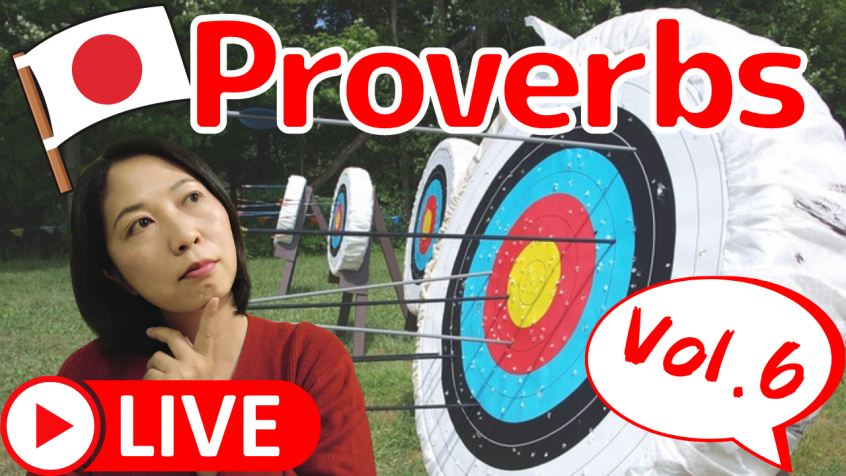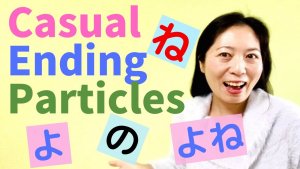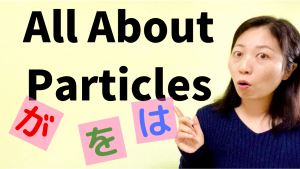Minasan Ohayō gozaimasu!
Can you guess what does “The loser is the winner” mean?
Let’s find it now!
I’ll show you 5 Japanese proverbs in this blog. Let’s get started!
Introducing 5 Japanese proverbs, vol.6 Video
明日には明日の風が吹く
(あすには あすの かぜがふく)
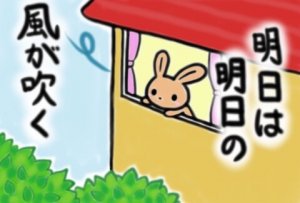
Romaji: asu niwa asu no kaze ga fuku
Word: asu (明日)= tomorrow, kaze (風)=wind, fuku (吹く)=blow
Direct translation: Tomorrow, will be blow the tomorrow’s wind
Equivalent English expressions: Tomorrow is another day, Start tomorrow with a clean slate
Example: What a day!, So sorry about you. But don’t worry, be happy! “asu niwa asu no kaze ga fuku” dayo.
論より証拠
(ろんよりしょうこ)
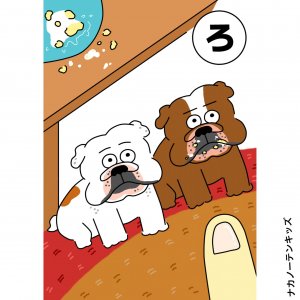
Source: nakanotenkids on twitter
Romaji: ron yori shōko
Word: ron (論)= logic, shōko (証拠) =evidence
Direct translation: Evidence rather than logic
Equivalent English expressions: Example is better than precept. The proof of the pudding is in the eating
Example: Don’t excuse! Show me the proof! “ron yori shōko” desu yo.
負けるが勝ち
(まけるが かち)

Romaji: makeru ga kachi
Word: makeru (負ける)= lose, kachi (勝ち)=win
Direct translation: The one who lose is the winner
Equivalent English expressions: Win by losing. The one who is not afraid of losing is the winner. Winners are not afraid of losing
Example: This time, I lost on purpose to see the other party’s weak points. Because I know I can win next time! “makeru ga kachi” dane.
終わり良ければすべて良し
(おわりよければ すべてよし)
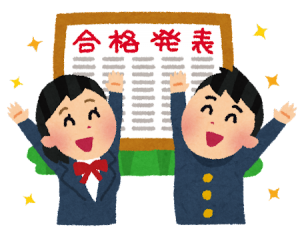
Romaji: owari yokereba subete yoshi
Word: owari (終わり)= end, yokereba (良ければ)= if it’s good, subete (全て) =all, yoshi (良し)← yoi(良い)=good
Direct translation: All is good if the end is good
Equivalent English expressions: All is well that ends well. The end crowns all.
Example: The middle part wasn’t really good as everyone is tired. But the ending was great and everyone looked happy. Good! Yokatta! “owari yokereba subete yoshi” dane.
下手な鉄砲も数撃ちゃ当たる
(へたな てっぽうも かずうちゃあたる)

Romaji: heta na teppō mo kazuucha ataru
Word: heta (下手)=poor, teppō (鉄砲)=gun
Direct translation: Even a poor gun will hit the target with a number of shots. He who shoots often hits at last.
Meaning: Even you’re not good at it, try many times and it will hit in the end.
Example: I know you’re not good at it. Why don’t you try many times then? “heta na teppō mo kazuucha ataru” dayo.
How was it? Dō deshita ka?
Do you have your favorite Kotowaza?
Hope you enjoyed the 5 Japanese proverbs introduced this time!
Find out the 10 most famous Japanese proverbs!

* If you wonder what are “dane”, “dayo”, desu yo” – ending particles, you way want to watch these two videos 🙂
Want to learn Japanese?
For beginners, try 



How about making Hanko? Very unique gift

For daily posts about Japanese language and culture, please follow our Facebook page here.

